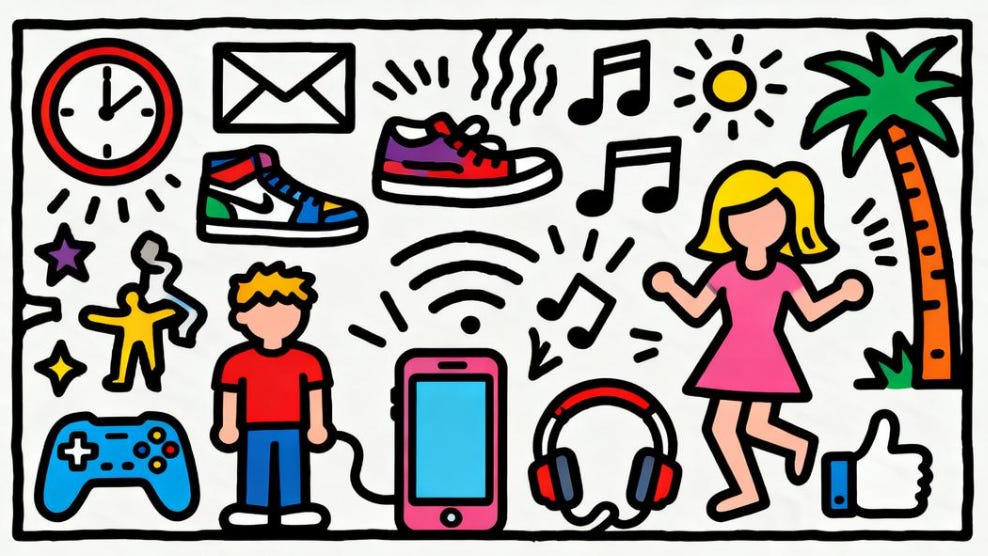Fighting the Urge to Buy?
A Pre-Purchase Reflection
The starting point of this discussion is my desire for stuff getting out of hand again.
There’s a bunch of stuff that’s taken root in my head, like a Magic Keyboard that would let me write at home in peace, and a PS5 that might just gather dust, but still holds the promise of fun.
I can clearly see that the motives behind this are twofold: one is based on practical needs, to make life or work more convenient and efficient, which is “for better use”; the other is a projection of an ideal self. What I want to buy is not the object itself, but rather a certain lifestyle it represents, a possibility of “perhaps being happier”.
As I mentioned before, I consider myself a minimalist, which is actually a projection of my ideal self. However, while I talk about reducing possessions, the wish list in my head might be longer than anyone else’s. This is a contradiction in itself.
So, the core question emerges: Does this materialistic desire need to be overcome?
It seems there are two paths before me:
The hedonistic path: Life is short, so live in the moment. This dopamine-driven happiness is direct and immediate. Although the moment of payment may cause a twinge of pain, just owning it brings satisfaction.
The path of asceticism: Actively choosing to “torment” oneself, through suppression and endurance, to exchange for a more profound and lasting sense of satisfaction when endorphins are released later, like a spring of joy gushing forth.
These two paths seem mutually exclusive. But in online community discussions, I came across an interesting perspective - the one about the material desires of the rich.
Since the rich enjoy a high quality of life, they take many things for granted, so their material desires are relatively low.
Although this argument may not be bulletproof, it offers a fresh goal: what we should pursue might not be “low material desires”, but rather a state of “low material desires” under a “high quality of life”.
That is to say, the true goal is not to reduce desires by “suppressing”, but to build up our inner world until it feels full. When your inner self is strong and full enough, many external material things will naturally become dispensable burdens. At that time, we shop only because “I need”, not because “I am lacking”.
This immediately opened up my thinking. Our task is no longer to fight against desires, but to shift to examining and judging them:
Do I really want this thing?
Is it “necessary” for my life?
To make such a rational judgment, I need to make a checklist, using tools to force myself to think deeply and avoid being led by feelings.
To what extent can it enhance my current quality of life?
Would my life become seriously worse without it?
Looking back many years later, will I regret not buying it earlier, or regret having bought it and let it gather dust?
Is the joy it brings a quick dopamine hit, or is it a lasting endorphin-type feeling that helps me grow?
From a long-term perspective, can I keep using it?
This list can almost filter out most of the impulses. Of course, I have also tried the method of “putting it in the shopping cart and letting time pass”. But for someone like me who is prone to overthinking and getting fixated, this trick may not work.
As long as I don’t actually own it, that thing will be like a ghost, popping up from time to time to tempt me, and the tide of desire has not truly receded.
So, the ultimate way out might lie in that we must find for ourselves a “logically airtight reason not to buy it”. Only when reason completely convinces emotion can this inner tug-of-war truly come to an end. Or, through the review of this list, we find a logically sound reason that we must buy it, and then own it without any guilt.
AI generated some images and helped write the article.



